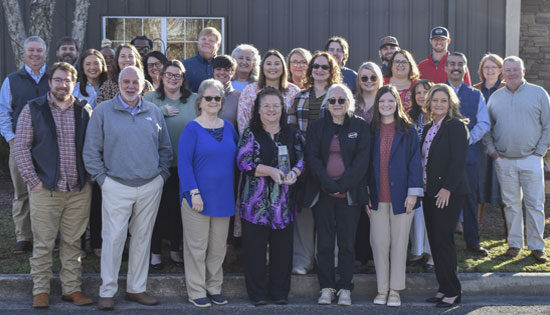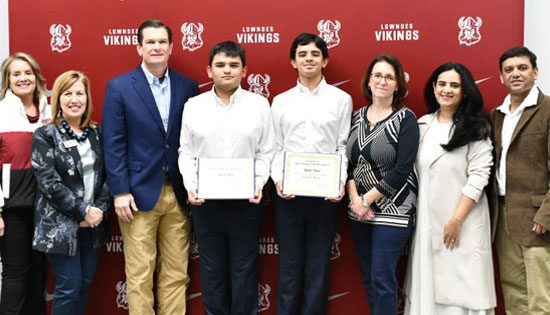Nicholas A. Rudnik, Valdosta Today Opinion Contributor:
A Nuclear North Korea Means One Thing for Certain: The Human Race Hangs in the Balance
In the black-and-white 1951 film adaptation of the science fiction film The Day the Earth Stood Still (no, not the 2008 remake), aliens descend on Earth to deliver humanity an important message. Earth is a rare place in our universe and they feel that humanity has threatened the very survival of this relatively small, rocky planet capable of supporting life. And man has endangered Earth with his own technology: nuclear weapons.
The twentieth century was replete with many colossal ironies. Among the most dangerous was found in our ability to split the atom. Frequently hailed among man’s greatest achievements (if not the greatest single achievement) splitting and fusing atoms—the smallest particles known to compose matter—in order to create enormous amounts of energy, is a testament to modern science. It is an affirmation of the forward march of mankind’s intelligence, from using the most primitive tools many millennia ago to nuclear power today.
That advancement comes with an equally enormous price and responsibility. Remember, the atomic age was born from the weaponization of nuclear fission and, later, fusion technologies. For nearly a half-century following World War II, the threat of hydrogen war loomed over the entire globe. The United States and the Soviet Union amassed significant stockpiles of atomic weapons regulated under an uneasy doctrine of mutually assured destruction (MAD): if the Soviets “dropped the a-bomb,” then we would too (and vice versa). It insured that should the bombs rain down, life on this planet was at risk, not powerful governments or misguided doctrines or ideologies.
North Korea, the radical, communist “hermit kingdom” led by despot Kim Jong-un, yearns to be the next nation to fully join the “nuclear club”—that is, states with nuclear military response capabilities. And, as they become even closer to achieving those ends, we cannot allow this to happen—at any cost.
The North Korean government recently articulated that they are willing to impose a moratorium on further nuclear testing, under the condition that the U.S. refrain from conducting military exercises with South Korea. The U.S. has previously refused to accept the demands of the rogue communist nation. We must hold firm to this policy.
“Nuclear politics” has no margin of error. The closest the world has ever come to atomized combat was during the Cuban Missile Crisis in October 1962. So imminent was this threat that President John F. Kennedy pleaded with his wife and first lady, Jaqueline Kennedy, to leave the White House in Washington and take refuge with their children at Camp David for safety (she refused).
Many may recall that President Kennedy “quarantined,” or blockaded, all ships trying to enter Cuba after U.S. intelligence spotted what appeared to be missile silos on the island nation. He instructed the navy to fire a shot across any ship’s bow that attempted to run that blockade since these ships were presumed to carry nuclear missile materiel—an act of war, no doubt. The crisis passed when Soviet First Secretary Nikita Khrushchev agreed to dismantle the missile sites if the U.S. removed similar missile sites from Turkey.
Staring nuclear annihilation in the face, President Kennedy never relented. His leadership through one of the most difficult trials of any presidency prevented a conflict of enormous consequence. America needs this same leadership today when dealing with rogue states and terror groups seeking to acquire nuclear weapons or material.
The United States should never acquiesce or conciliate to actors who seek to upset the global status quo. The stakes are far too high for the United States to even attempt to appease a nation like North Korea that is among the most miserable places on the planet—its citizens living in abject poverty, no infrastructure, no economy, and a GDP almost entirely focused on developing atomic weapons. It simply cannot be a “game changer” in the politics of the Far East.
Atomic bomb designer, J. Robert Oppenheimer, recounted in 1965 following Trinity, the codename for the first nuclear test that, “We knew the world would not be the same. A few people laughed. A few people cried. Most people were silent.”
In the same way, with a nuclear North Korea, the world will never be the same—that much is for sure. The geopolitics of the globe will drastically shift in ways clearly hostile to U.S. interests. And some will laugh while others will cry. But Oppenheimer was right: most will be silent. We must hope the United States is not among the latter.
President Obama must show leadership and decisively work to disarm the North Korean “hermit kingdom.” For through it all, we should remember what’s at stake: our home, our planet.
 Nicholas A. Rudnik is currently pursuing a degree in political science with a concentration in American politics at Valdosta State University. Previously, he’s served as a congressional page in the U.S. House of Representatives during the 111th Congress and in the Office of U.S. Congressman Sanford Bishop. Further, Nick has served on staff at an institutional interest group, the Association of American Law Schools, in Washington and has worked in the private sector. He has presented his research, focused primarily on congressional parties and elections, at regional academic conferences and hopes to pursue a graduate degree in political science. Nick is currently completing two manuscripts relating to southern congressional elections and judicial decision-making in the area of campaign finance; he can be contacted via e-mail at narudnik@valdosta.edu. Follow Nick on Twitter: @NickRudnik.
Nicholas A. Rudnik is currently pursuing a degree in political science with a concentration in American politics at Valdosta State University. Previously, he’s served as a congressional page in the U.S. House of Representatives during the 111th Congress and in the Office of U.S. Congressman Sanford Bishop. Further, Nick has served on staff at an institutional interest group, the Association of American Law Schools, in Washington and has worked in the private sector. He has presented his research, focused primarily on congressional parties and elections, at regional academic conferences and hopes to pursue a graduate degree in political science. Nick is currently completing two manuscripts relating to southern congressional elections and judicial decision-making in the area of campaign finance; he can be contacted via e-mail at narudnik@valdosta.edu. Follow Nick on Twitter: @NickRudnik.











